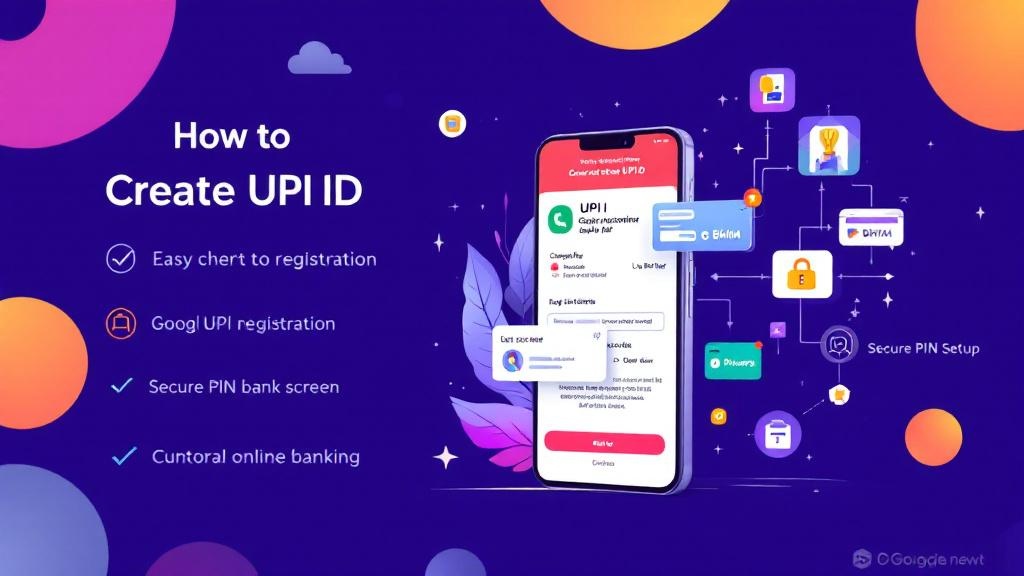In today’s fast-paced world, learning how to Balance personal finance management with professional commitments has become more crucial than ever. Did you know that nearly 70% of Americans feel anxious about their financial situation? Juggling career responsibilities alongside financial obligations can create significant stress, leaving many feeling overwhelmed. However, finding harmony between these two aspects of life is not only achievable but can also lead to improved well-being and professional success. Whether you’re striving to meet your financial goals or climbing the corporate ladder, mastering this delicate balance will empower you to make informed decisions, reduce stress, and ultimately thrive both personally and professionally.
Understanding the Balance personal finance management with professional commitments
Defining the relationship between personal finance management and professional commitments is crucial for achieving a fulfilling life. As individuals strive to advance their careers, it is vital to recognize how financial decisions are intertwined with professional obligations.
Defining Personal Finance Management
Personal finance management involves the strategic planning, organizing, directing, and controlling of financial activities. This includes budgeting, saving, investing, and spending in a way that aligns with personal goals. Understanding this concept can help you navigate the complexities of financial responsibilities while managing a demanding career.
The Role of Work Life in Financial Decisions
Work life significantly impacts financial decisions in several ways:
- Income Variability: Fluctuations in salary or bonuses can influence budgeting strategies.
- Career Growth: Professional development often requires investments in education or skill-building that can affect cash flow.
- Time Constraints: Limited time for financial management can lead to poor decisions if not adequately addressed.
Importance of Balancing Both Areas
Finding balance in personal finance and professional life is not merely a goal—it’s essential for long-term well-being. Successfully managing financial responsibilities allows individuals to focus on career growth without the anxiety of financial insecurity.
Integrating these two facets can lead to greater financial literacy and informed decision-making, thus enhancing overall life satisfaction. To dive deeper into effective financial strategies, consider visiting Bank of America for resources on financial literacy tailored to your unique situation.
By understanding how to balance personal finance management with professional commitments, you set the groundwork for a harmonious and successful life.
Identifying Financial Goals Alongside Career Objectives
Balancing personal finance management with professional commitments begins with setting clear financial goals that complement your career aspirations. By effectively aligning these objectives, you can create a road map that leads to both personal and professional success.
Setting Short-term and Long-term Financial Goals
Establishing financial goals is essential for guiding your decisions and maintaining focus. It is advisable to distinguish between short-term and long-term goals:
- Short-term goals (within 1 year):
- Building an emergency fund
- Paying off small debts
- Saving for an upcoming vacation
- Long-term goals (1 year and beyond):
- Saving for retirement
- Investing in education or skills development
- Buying a home
Aligning Career Aspirations with Financial Planning
To ensure you master how to balance personal finance management with professional commitments, consider how your career goals intersect with your financial targets. This alignment is crucial for developing a cohesive strategy:
- Evaluate potential salary increases with career advancements.
- Assess the costs associated with professional development opportunities.
- Consider the flexibility of jobs and how they impact financial stability.
Measuring Progress in Both Areas
Regularly evaluating your progress in achieving your financial goals and career objectives helps you stay on track. Here are some methods to measure your progress:
- Conduct monthly reviews of your budget and savings.
- Set quarterly career performance evaluations with your supervisor.
- Utilize financial tracking apps to visualize progress towards your goals.
Ultimately, combining financial goals with career objectives enables individuals to make informed, responsible decisions that promote both growth and stability. For more tools to help in financial goal setting, you may find valuable resources on Wells Fargo.
Time Management Strategies for Financial Oversight
Effectively managing your time is a crucial component in learning how to balance personal finance management with professional commitments. Time management strategies can help you prioritize financial responsibilities without compromising your career performance.
Creating a Financial Management Schedule
Establishing a structured schedule for financial oversight can significantly ease the pressure of juggling personal and professional commitments. Consider the following steps to create an effective schedule:
- Set dedicated time slots for financial planning, such as budgeting or reviewing investments.
- Use a calendar app to remind you of important financial deadlines, like bill payments and savings contributions.
- Integrate financial tasks into your daily routine to ensure they don’t get overlooked.
Leveraging Technology for Time-Saving Solutions
In today’s digital age, numerous tools can simplify financial management. Utilizing technology not only saves time but also enhances efficiency. Here are some options:
- Budgeting Apps: Tools like Mint or YNAB (You Need A Budget) help track expenses automatically and alert you to overspending.
- Expense Tracking: Finance software such as QuickBooks can streamline your financial records, making it easier to track income and expenditures.
- Investment Platforms: Automated investing services like Betterment can manage your portfolio with minimal effort on your part.
Prioritizing Financial Tasks within the Workday
Strategically prioritizing financial tasks can free up valuable time during your workday. Consider these strategies:
- Integrate financial review sessions during breaks to efficiently utilize downtime.
- Batch similar tasks together, such as banking and budgeting, to maintain momentum.
- Limit distractions during financial planning sessions to maximize productivity.
By effectively implementing these time management strategies, you will find it easier to balance personal finance management with professional commitments while remaining focused on your career growth. For additional tools to improve your time management, check out resources on Microsoft.
Effective Budgeting Techniques for Busy Professionals
Budgeting is an essential skill that can empower you to successfully navigate how to balance personal finance management with professional commitments. A solid budget serves as a framework for your financial decisions, helping you stay on track while managing a demanding work schedule.
Developing a Budget that Accommodates Work Life
When crafting a budget, it’s crucial to consider both your income and various work-related expenses. Here are key steps to develop a budget that fits your lifestyle:
- Assess your income sources: Include salary, bonuses, and any side income related to your profession.
- Identify fixed and variable expenses: Factor in rent/mortgage, utilities, work-related travel, and discretionary spending.
- Allocate funds for savings and investment: Dedicate a portion of your income to long-term savings and investment goals.
Tools and Apps for Budgeting on the Go
Utilizing budgeting tools and apps can make tracking your finances easier, especially for busy professionals. Some popular choices include:
- Mint: A free app that provides a comprehensive view of your finances, allowing you to track spending and set goals.
- YNAB (You Need A Budget): A budgeting tool emphasizing proactive financial planning, which can help you allocate today’s income for future expenses.
- PocketGuard: This app helps you quickly see how much disposable income you have after accounting for bills and savings goals.
Monitoring Expenses: A Focused Approach
To ensure you stay on top of your budget amidst professional commitments, it’s vital to regularly monitor your expenses. Here are effective methods:
- Set weekly check-ins: Review your spending at the end of each week to prevent overspending.
- Utilize automatic tracking: Link your bank accounts or credit cards to budgeting apps to automatically track and categorize expenses.
- Adjust your budget: Be flexible; if you notice unexpected expenses or changes in income, adjust your budget accordingly.
By developing effective budgeting techniques, you can successfully manage your finances while pursuing your professional commitments. For further resources on budget planning, consider visiting Chase.
Integrating Financial Education into Professional Development
The pursuit of financial literacy is essential for anyone looking to master how to balance personal finance management with professional commitments. Continued education in finance can enhance decision-making skills, helping you navigate both personal and professional financial landscapes more effectively.
The Importance of Continuous Financial Learning
Financial education can empower individuals to make informed decisions regarding savings, investments, and overall financial health. Here are some of the benefits:
- Enhanced Knowledge: Understanding financial concepts helps in making better investment choices.
- Risk Management: Learning about financial strategies can help minimize potential risks to your assets.
- Informed Negotiation: Better knowledge of personal finance can improve negotiating skills for salary and benefits in your professional life.
Resources for Enhancing Financial Literacy
To continue developing your financial literacy while managing a busy work schedule, take advantage of various resources:
- Online Courses: Platforms like Coursera and Udemy offer courses on personal finance and investment strategies.
- Podcasts and Webinars: Listen to engaging financial experts discuss current trends and tips during your daily commute.
- Books and Blogs: Consider reading financial books or following reputable finance blogs to learn at your own pace.
Networking Opportunities to Boost Financial Knowledge
Networking can provide valuable insights and create opportunities to learn from others who have navigated the challenges of balancing finance and work. Here’s how you can leverage networking:
- Join Professional Organizations: Participate in groups related to your field that offer workshops or financial seminars.
- Attend Conferences: Engage with experts and peers in your industry to learn about the financial aspects specific to your profession.
- Engage on Social Media: Follow finance professionals and organizations on platforms like LinkedIn and Twitter to stay updated on financial trends.
By integrating financial education into your professional development, you can enhance your ability to balance personal finance management with professional commitments, leading to a more empowered and secure financial future. For additional resources on financial education, visit Khan Academy.
Stress Management: Balancing Financial Pressure with Work Demands
Managing financial pressure while fulfilling professional commitments can lead to significant stress. Understanding how to balance personal finance management with professional commitments is crucial not only for financial health but also for emotional well-being.
Recognizing Signs of Financial Stress
Being aware of the signs of financial stress is the first step towards addressing it effectively. Common indicators include:
- Anxiety about paying bills: Constant worry about meeting financial obligations.
- Physical symptoms: Headaches, sleeplessness, or digestive issues triggered by financial concerns.
- Neglecting financial tasks: Procrastinating on important financial decisions or not tracking expenses.
Strategies for Stress Management in a Professional Environment
Once you can recognize financial stress, implementing coping strategies is essential. Here are some effective methods:
- Mindfulness Techniques: Practicing mindfulness or meditation can help alleviate anxiety and provide clarity in decision-making.
- Create a Support Network: Engage with friends, family, or financial professionals who can provide insights or support not only in financial matters but also in emotional aspects.
- Set Realistic Financial Goals: Break down larger financial goals into smaller, manageable tasks to reduce feelings of overwhelm.
Creating a Support System for Financial Discussions
Addressing financial challenges can be daunting, but a supportive network can alleviate stress. Consider these avenues:
- Join Support Groups: Look for local or online financial discussion forums or groups to share experiences and solutions.
- Engage Financial Advisors: A qualified advisor can provide tailored guidance, relieving some pressure from personal decision-making.
- Utilize Workplace Resources: Many companies offer employee assistance programs (EAPs) that provide free counseling services for financial or personal challenges.
By prioritizing stress management, you can effectively navigate the complexities of balancing personal finance management with professional commitments, leading to improved overall well-being. For resources on stress management and financial well-being, consider visiting American Express.
Evaluating Financial Products and Services Amidst a Busy Schedule
Choosing the right financial products and services is essential for those looking to balance personal finance management with professional commitments. With a busy schedule, it’s important to efficiently evaluate these options to ensure they align with your financial goals.
Time-efficient Research Methods for Financial Products
Conducting thorough research doesn’t have to be time-consuming. Here are effective methods to evaluate financial products:
- Use Comparison Websites: Platforms like NerdWallet or Bankrate allow you to compare features and rates of various financial products side by side.
- Read Reviews: Customer testimonials on reputable financial websites can provide insights into the experiences of others with a particular product.
- Leverage Social Media: Online communities often discuss the latest trends and personal finance tools, helping you gather perspectives quickly.
How to Choose Financial Advisors When Time is Limited
Finding a financial advisor who understands your unique situation can help you make informed decisions without consuming too much of your time. Consider these tips:
- Check Credentials: Research advisors’ qualifications, such as Certified Financial Planner (CFP) or Chartered Financial Analyst (CFA) designations.
- Interview Potential Advisors: Schedule brief consultations to ask about their services, fees, and how they help clients achieve their financial goals.
- Seek Referrals: Ask friends or colleagues for recommendations based on their personal experiences to find trustworthy advisors more efficiently.
Balancing Financial Decisions with Job Responsibilities
Ensuring your financial decisions are in line with your work commitments is critical. Here are strategies to maintain this balance:
- Set Time Limits: Allocate specific time slots each week to focus on financial decisions, preventing work from encroaching on this essential task.
- Keep Financial Documents Organized: Use digital document storage solutions like Dropbox or Google Drive to keep your financial records easily accessible.
- Automate Where Possible: Automate savings and bill payments to save time and minimize the mental load associated with financial management.
By implementing efficient research methods and strategies for evaluating financial products, you can effectively learn how to balance personal finance management with professional commitments without overwhelming your schedule. For additional tools and resources, you can visit Fidelity.
Conclusion: Making the Commitment to Balance Financial and Professional Life
Successfully managing the intersection of personal finance and professional commitments requires a deliberate and consistent effort. By understanding various strategies, you can build a solid foundation for financial wellness while advancing your career.
The Long-term Benefits of Mastering Balance
Finding harmony between your financial responsibilities and professional goals not only secures your present but also paves the way for a prosperous future. Some key benefits include:
- Reduced Stress: Mastering financial management mitigates anxiety, allowing you to focus on your career pursuits.
- Improved Decision-Making: A balanced approach enhances your ability to make informed decisions in both areas of your life.
- Financial Growth: Achieving a balance fosters sustainable financial growth, increasing your investment and savings potential over time.
Encouragement to Take Action Now
It’s essential to take actionable steps towards balancing personal finance management with professional commitments. Here’s how you can get started:
- Assess Your Current Situation: Identify areas where improvements can be made in both your financial and professional aspects.
- Set Clear Goals: Establish specific, measurable objectives for your finances that align with your career aspirations.
- Stay Committed: Regularly review your progress and make necessary adjustments to your strategies to keep everything on track.
Final Thoughts on Achieving Personal and Professional Harmony
Balancing personal finance management with professional commitments is an ongoing journey. While challenges may arise, the rewards of achieving financial stability and career success are well worth the effort. Embrace the tools and strategies discussed throughout this post to facilitate a fulfilling life. For more resources and insights on personal finance management, consider visiting Charles Schwab.
Frequently Asked Questions
What are the key components of effective personal finance management?
Effective personal finance management includes budgeting, saving, investing, and monitoring expenses. Establishing clear financial goals and regularly reviewing your financial health are essential to ensure you remain on track and make informed decisions.
How can I create a budget that works for my busy lifestyle?
To create a budget that accommodates a busy lifestyle, start by assessing your income and expenses. Utilize budgeting apps like Mint or YNAB to streamline the process, set aside time each week to review your budget, and automate savings or bill payments to reduce time spent managing finances.
What are some quick ways to enhance financial literacy?
Enhancing your financial literacy can be done quickly through various resources. Online courses, financial podcasts, and reputable finance blogs provide accessible information. Additionally, engaging with financial communities on social media can expose you to valuable insights and discussions.
How can I manage financial stress while maintaining work productivity?
Managing financial stress involves recognizing the signs of stress and implementing coping strategies. Techniques such as mindfulness, maintaining a support system, and setting realistic financial goals can help alleviate anxiety, allowing you to focus better on work and make informed financial decisions.
When should I consider seeking professional financial advice?
You should consider seeking professional financial advice when you’re facing significant changes in your financial situation, feeling overwhelmed by complex financial decisions, or when you’re unsure about the best investment strategies. A financial advisor can provide personalized guidance and a roadmap to align your financial goals with your professional commitments.








Comments (0)